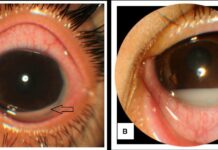For a majority of us, hiccups are annoying, but since they last for a few seconds, the annoyance fades away with the hiccups. What if the hiccups don’t go away? What if the hiccups persist while you talk, eat, sleep, or breathe?
Ask Christopher Sands!
A 26-year-old musician had been at war against intractable hiccups for a long time (approximately 2 years). The normally short-lived, physiological function became pathological for him.
The first bout of chronic, intractable hiccups occurred in February 2007 without any apparent predisposing cause:
“When [the hiccups] started, it was completely random, out of the blue, for no reason,” said Sands.
Within the first 2 days, he surfed the internet, and the research landed him to a self-suspicion of brain tumor. He consulted a physician who comforted him with a diagnosis of heartburn.
The hiccups subsided spontaneously within the next 2 weeks only to occur again!
Over the course of the next few months, Sands tried a wide array of home remedies and alternative medicine to alleviate the hiccups, ranging from herbal teas, herbal medicines to yoga, and hypnotherapy.
Nothing seemed to work!
After a series of laboratory tests and imaging, only a congenital disability in his lower esophageal sphincter was detected, which caused the heartburn and vomiting.
The constant hiccupping had rendered him unable to perform as a guitarist and vocalist. He couldn’t sleep or eat either.
Even when the hiccups had subsided, Sands felt like he was about to hiccup.
He would be in constant pain due to hiccups for straight 14 hours, every 2 seconds. Sands said:
“I can hiccup for 14 hours nonstop, or I’ll be free of them, but not free of them at all.”
Dr. Martin Makary, director of the Johns Hopkins Center for Surgical Outcomes Research, described the role of diaphragmatic muscle contraction in the pathophysiology of hiccups. He said:
“In general, [hiccupping] is a sign of diaphragm-related problems”.
Finally, in the summer of 2009, he had a trip to Japan, where a hiccup specialist, Dr. Condo, ordered an MRI, which revealed a tumor in his brain stem.
Chris Sands said:
“When I found out, I just dropped, it was lucky there was a chair underneath me because I would have dropped to the floor. I was in tears, and I didn’t know what to do.”
Dr. Condo, while explaining the reason for late diagnosis, said:
“CT scans are extremely poor at detecting in this area – unless you use an MRI scan you won’t be able to detect it. If they had done an MRI scan in England, they probably would have found it.”
In September of 2009, a surgery was performed, which removed the two-thirds of the tumor, which subsequently alleviated the hiccups.
Dr. Martin Makary said.
“The brain stem is a great location to remove tumors without a lot of peripheral damage, so [surgery] can be done with a very clean cut.”
Although there were risks with the surgery, without the surgery, the expected life span was 2 years from the time of diagnosis.
Postoperatively, Sands recovered well but had generalized weakness on his left side that continued to improve.
Sands said:
“I am happy, and hiccup- and tumor-free, and I got to go to Tokyo twice.”




